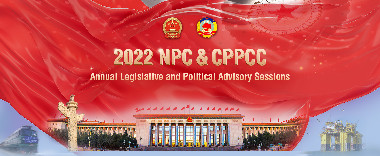Beijing Moves to Protect Two Sessions from Coronavirus
As this year's two sessions open this week in Beijing, the capital has ramped up efforts to ensure safety and prevent the transmission of disease during the big event.
Lu Yan, vice-mayor of Beijing, said on Sunday during a news conference that the city "will insist on higher standards and more stringent requirements, and it will adopt more practical measures to strengthen services and guarantee work for the two sessions", China's top annual political event.
"The capital's experience in battling the COVID-19 pandemic in recent months can help us better guide different municipal departments to ensure the security of the city."
Community prevention work in the city still faces challenges. Zhang Ge, a senior official in the municipal government, said on Sunday that communities will continue to be strictly closed off. For returnees from areas in China categorized as high-or medium-risk, and with regard to people who have traveled overseas, strict screening measures need to be applied, and emergency plans should be devised ahead of time.
"We need to reduce all kinds of risks to the greatest extent," he said.
Meanwhile, the capital is expected to see continued improvement. Lei Haichao,director of the Beijing Municipal Health Commission, said the city is scheduled to establish a P3-level biosafety lab in the near future, a move to improve coronavirus testing capabilities. The P3 level is the second-highest for lab security.
The commission said on Tuesday that there were no new locally transmitted or imported coronavirus cases in Beijing on Monday. The capital has reported no increase in COVID-19 cases for 33 consecutive days.
But despite the encouraging trend, people entering Beijing should continue to be managed in a strict and orderly manner, the city's disease prevention and control leading group said on May 18.



